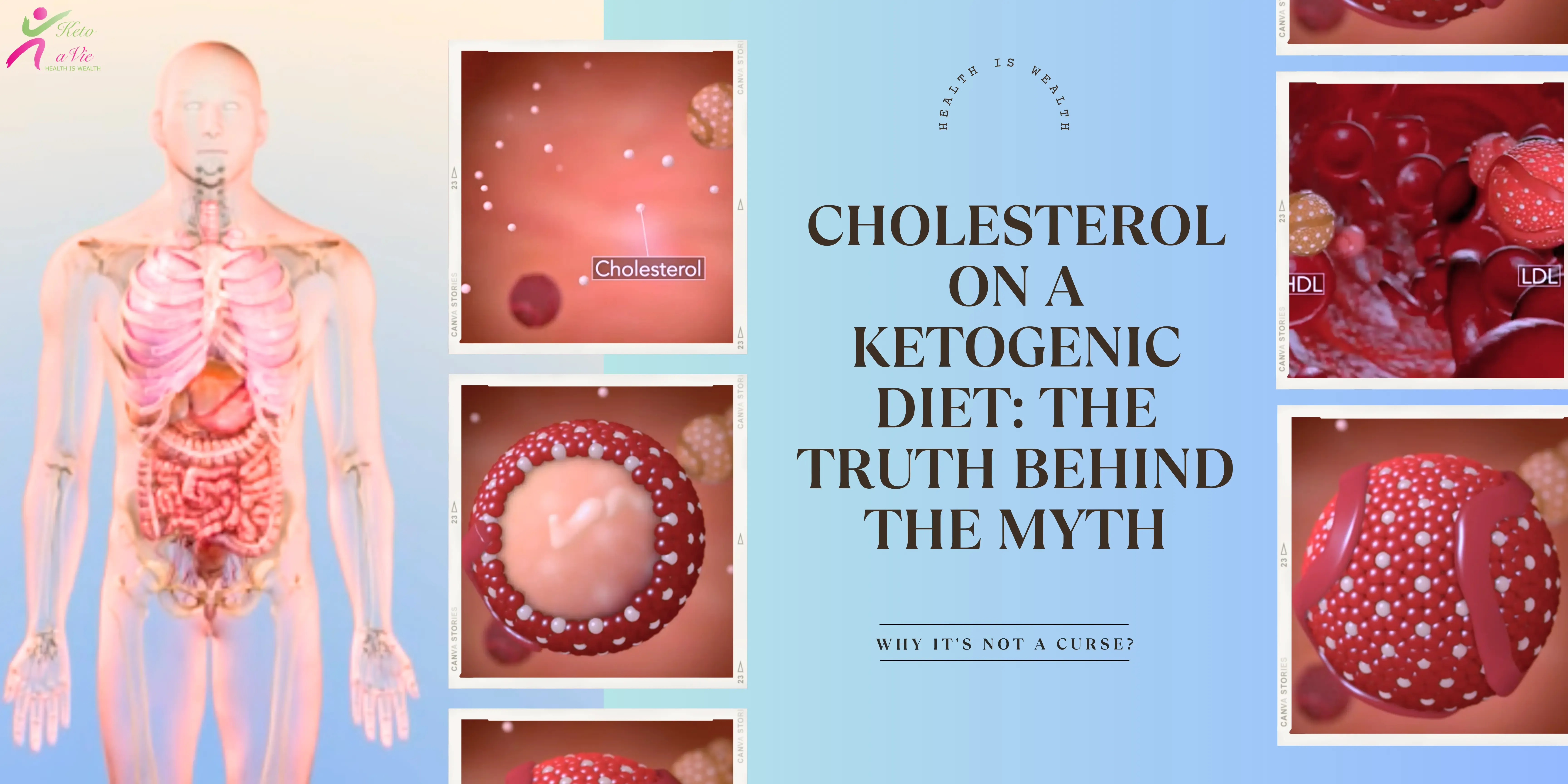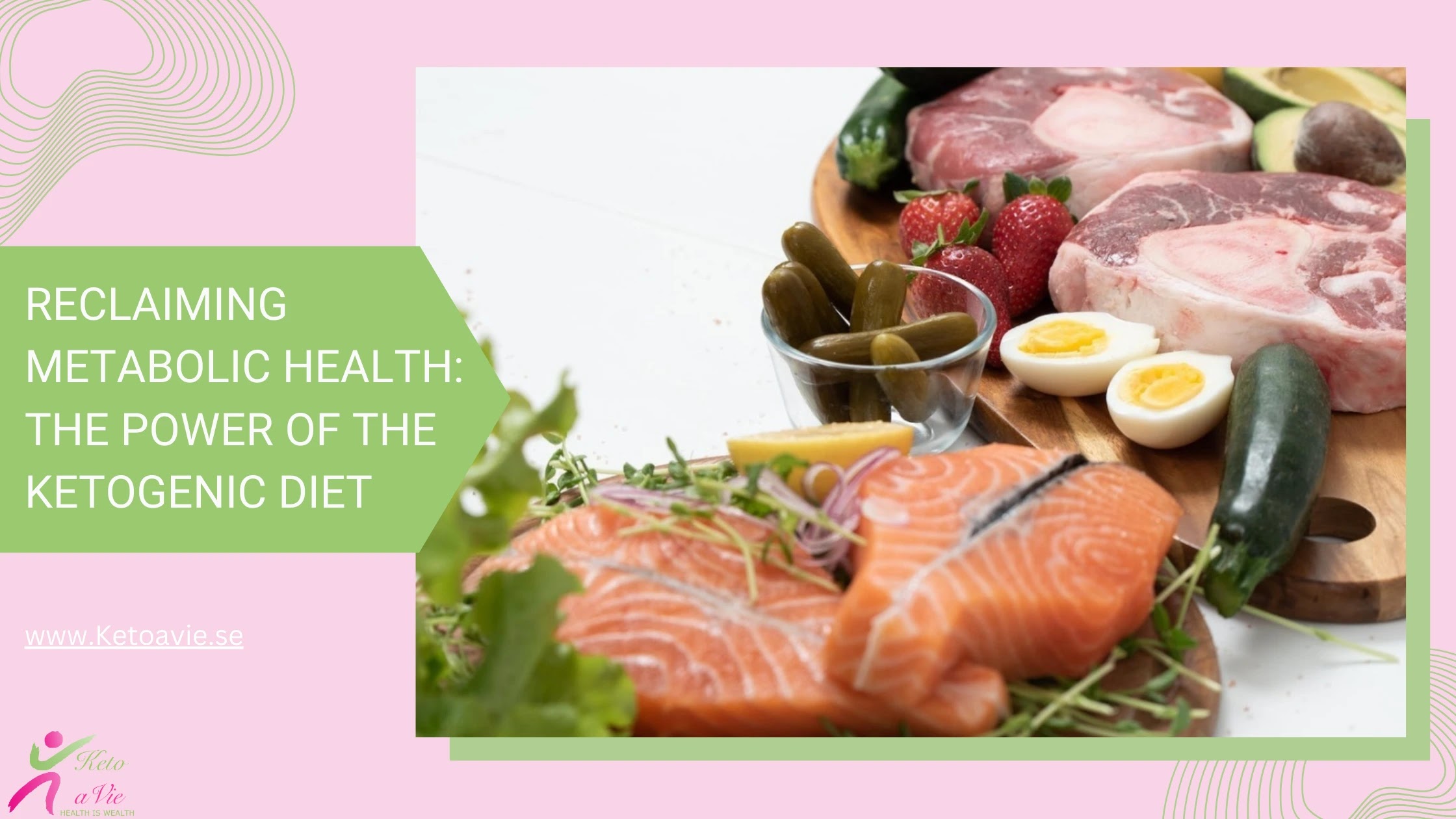The Truth About Cholesterol on a Ketogenic Diet: Separating Myth from Fact!
The Truth About Cholesterol on a Ketogenic Diet
I'm frequently asked about the role of cholesterol on the ketogenic diet. There's a lot of misinformation out there about cholesterol and its link to cardiovascular disease, which can cause confusion and concern for those following this diet. In fact, when you discuss the ketogenic diet with other people and - EVEN your doctor - you forget, and they forget, the contextual question. Because they live in their representation of the world (crowded with carbohydrates). In this article, we'll separate myth from fact and help you understand the truth about cholesterol on a ketogenic diet.
Weight Loss and Fatty Acid Mobilization
One of the primary benefits of the ketogenic diet is weight loss. When you reduce your carbohydrate intake and increase your fat intake, your body shifts from using glucose for energy to using fat. When we start to adjust, metabolize more fat, and burn fatty acids, we see an increase in cholesterol. When fat begins to be oxidized and released, cholesterol rises. And why? Because while triglycerides are mobilized, then released and then used for energy, cholesterol is still present. Because cholesterol cannot be burned for fuel, it is not metabolized. It’s not energy. So, it stays in the blood and waits to be recycled by the liver. He doesn't do anything good or bad, he's just higher. And that's just an indicator that your body is using a little more fat for energy right now.
During the first six months of the ketogenic diet, or while actively losing weight, it's common to see a sharp increase in cholesterol levels(*). Over time, these levels will stabilise, and it's possible for both HDL and LDL levels to increase on the ketogenic diet. Quite simply because both are mobilised!
LDL in the Ketogenic Diet (*)
LDL cholesterol has been associated with an increased risk of cardiovascular disease, leading some to worry about the impact of a high-fat diet on their LDL levels. However, it's essential to understand that not all LDL particles are created equal. The few B particles that you have are not at risk of oxidizing if you stick to a low-carb diet. In contrast, carbohydrates and sugars can increase inflammation in the arteries and lead to changes in the ratio of LDL particles. So no, you are not clogging your arteries, you are just transporting, metabolizing more fat, and nourishing your cells with fat- and fat-soluble nutrients! And that's EXACTLY what we're looking to do on a ketogenic diet!
Additionally, it's important to note that the role of cholesterol in the body is vital. Cholesterol is essential for the production of hormones, cell membranes, and vitamin D synthesis. When you increase your fat intake on a ketogenic diet, you're providing your body with the necessary building blocks for these critical functions.
Conclusion: The Benefits of Cholesterol in Ketosis
In conclusion, an increase in cholesterol levels on a ketogenic diet is not necessarily a bad thing (*). It's a sign that your body is using fat for energy and nourishing your cells with fat-soluble nutrients. By focusing on the subject of HDL and LDL levels and understanding the importance of different LDL particles, we can better understand the benefits of the ketogenic diet.
I Hope you are a little reassured! Raising cholesterol (on a ketogenic, anti-inflammatory diet) is NOT a curse, it's a good thing. And that's even a sign that what you're doing is working! Always remember that on the ketogenic diet, it's all about fat! You eat more fat, you burn more fat, you metabolize more fat!
Embrace Cholesterol as a Positive Indicator
Remember that cholesterol plays a vital role in the body, and it's not something to be feared or avoided. Instead, focus on the quality of the fat you consume and avoid overconsumption of carbohydrates and sugars, which can increase inflammation in the arteries. Not all cholesterol is created equal, and an increase in cholesterol on a ketogenic diet is actually a sign that your body is using more fat for energy and nourishing your cells with fat-soluble nutrients.
Frequently Asked Questions (FAQ)
Q: Does the Ketogenic Diet Raise Cholesterol Levels?
A: Yes, initially, the ketogenic diet may result in elevated cholesterol levels. This is primarily because, during the early stages of ketosis and weight loss, the body begins to mobilize and metabolize more fat. As triglycerides are released and used for energy, cholesterol levels can temporarily increase. This rise is a positive indicator that your body is transitioning to using fat for energy.
Q: Is High LDL Cholesterol on a Ketogenic Diet Dangerous?
A: Not necessarily. The type of LDL (Low-Density Lipoprotein) cholesterol is crucial. On a low-carb, high-fat diet like keto, the potentially harmful LDL-B particles are not typically elevated. Carbohydrates and sugars are more likely to contribute to inflammation and affect the LDL particle ratio. It's essential to understand that not all LDL particles are equally problematic.
Q: What's the Role of Cholesterol in the Body?
A: Cholesterol plays a vital role in various essential functions in the body. It is involved in hormone production, forms cell membranes, and is necessary for synthesizing vitamin D. When you consume a high-fat diet within the context of the ketogenic diet, you are providing your body with the critical building blocks for these functions.
Q: Why did my LDL go up when I lost weight?
A: A rise in LDL cholesterol levels during weight loss on a ketogenic diet can occur because the fat and cholesterol stored in fat tissues and liver cells have nowhere to go as fat cells shrink. This temporary increase is noticeable in fasting cholesterol blood tests and typically stabilizes over time.
Q: How to lower cholesterol on keto?
A: If you've noticed elevated cholesterol levels on a ketogenic diet and you're concerned, consider these dietary and lifestyle changes:
- Incorporate daily steamed greens and vegetables: Focus on low-carb options like kale, spinach, and collards to promote healthy cholesterol management.
- Include walnuts and fatty fish: These foods are rich in omega-3s, which can assist in lowering cholesterol and align with the ketogenic diet.
- Enhance your intake of nuts, seeds, and healthy monounsaturated fats: These can help lower LDL cholesterol and elevate HDL levels. Options like walnuts, almonds, and macadamia nuts are recommended.
- Enjoy antioxidant-rich fruits: Fruits like raspberries, strawberries, and blackberries can contribute to lower LDL cholesterol and are suitable for the keto diet.
- Consider water-soluble fiber supplements and tulsi tea: Fiber supplements can reduce LDL cholesterol levels, and tulsi tea (holy basil) is known for its potential to normalize cholesterol.
Q: How can I lower my LDL cholesterol on a keto or low-carb diet?
A: Consider these strategies to manage LDL cholesterol while maintaining a keto or low-carb lifestyle:
- Moderate fat intake in your coffee: Avoid excessive fat in your coffee, such as bulletproof coffee, when you're not hungry. Consuming fat only when hungry can help normalize elevated cholesterol levels.
- Practice eating only when hungry and explore intermittent fasting: Reducing meal frequency and embracing intermittent fasting can be effective in lowering cholesterol. Pay attention to your body's hunger cues.
- Choose unsaturated fats like olive oil, fatty fish, and avocados: Unsaturated fats promote heart health and can aid in lowering LDL cholesterol. These foods are compatible with both keto and low-carb diets.
- Incorporate keto-friendly foods that lower LDL: Avocados, green vegetables, cocoa, dark chocolate, nuts, and seeds are keto-compatible and may contribute to lower cholesterol levels.
- Reevaluate your carb intake: If strict keto isn't essential for your health, consider adopting a more moderate or liberal low-carb diet (e.g., 50–100 grams of carbs per day). Focus on unprocessed carb sources.
If you have any further questions or concerns about cholesterol and the ketogenic diet, please don't hesitate to reach out. As a ketogenic nutritionist, I'm here to help you navigate the ins and outs of this way of eating and make sure you're getting the most out of your journey to better health.
Transparency Note: This article may contain affiliate links, and I may earn a small commission from qualifying purchases made through these links. Rest assured, I only recommend products I have personally tested and believe can benefit your keto journey. Your support enables me to provide valuable content. Thank you for your support!
Visit my Amazon Keto Corner for Keto Essentials & Products!




Comments
Post a Comment